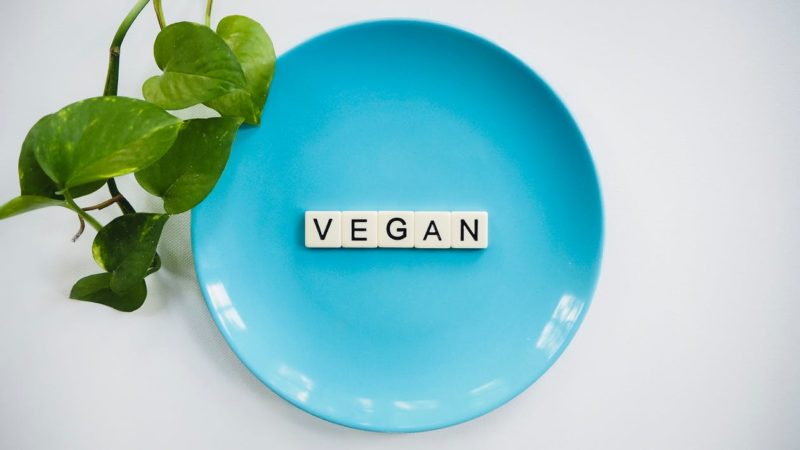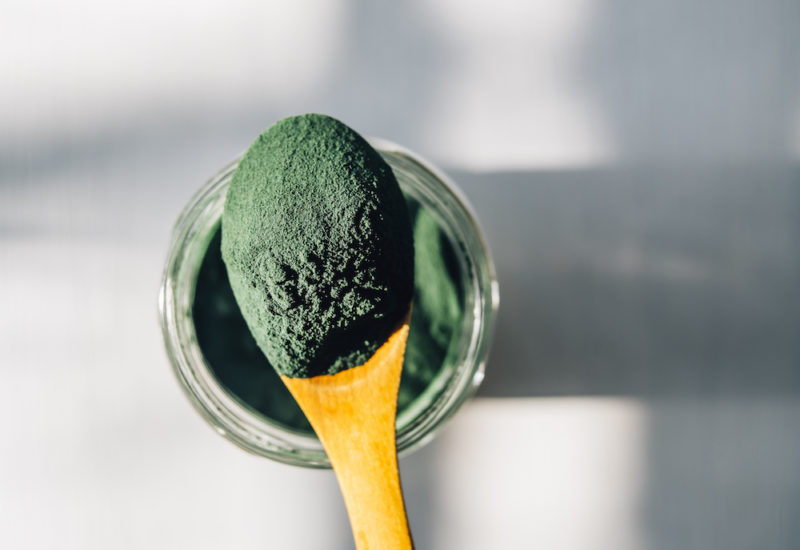Going plant-based is exciting, but it can also be a little confusing. Certain questions start to come up when you first start your journey:
- Does fake-cheese taste as good as real cheese?
- Is barbecue chick’n as good as barbecue chicken?
- Is being vegan going to be this hard forever?
All jokes aside, most of us depend on animal products for a chunk of our nutrition. So switching over to just plants (or mostly plants) can throw us for a loop. Most vegan babies (new vegans, not actual babies that happen to be vegan) stumble at first, but find their way.
A frequently asked question by new vegans is: what can I eat to ensure I’m getting my protein?
Today, we’re answering that question.And don’t worry–if you think you need to get creative, think again! It’s super easy to work in some protein.
Here are four easy vegan choices.
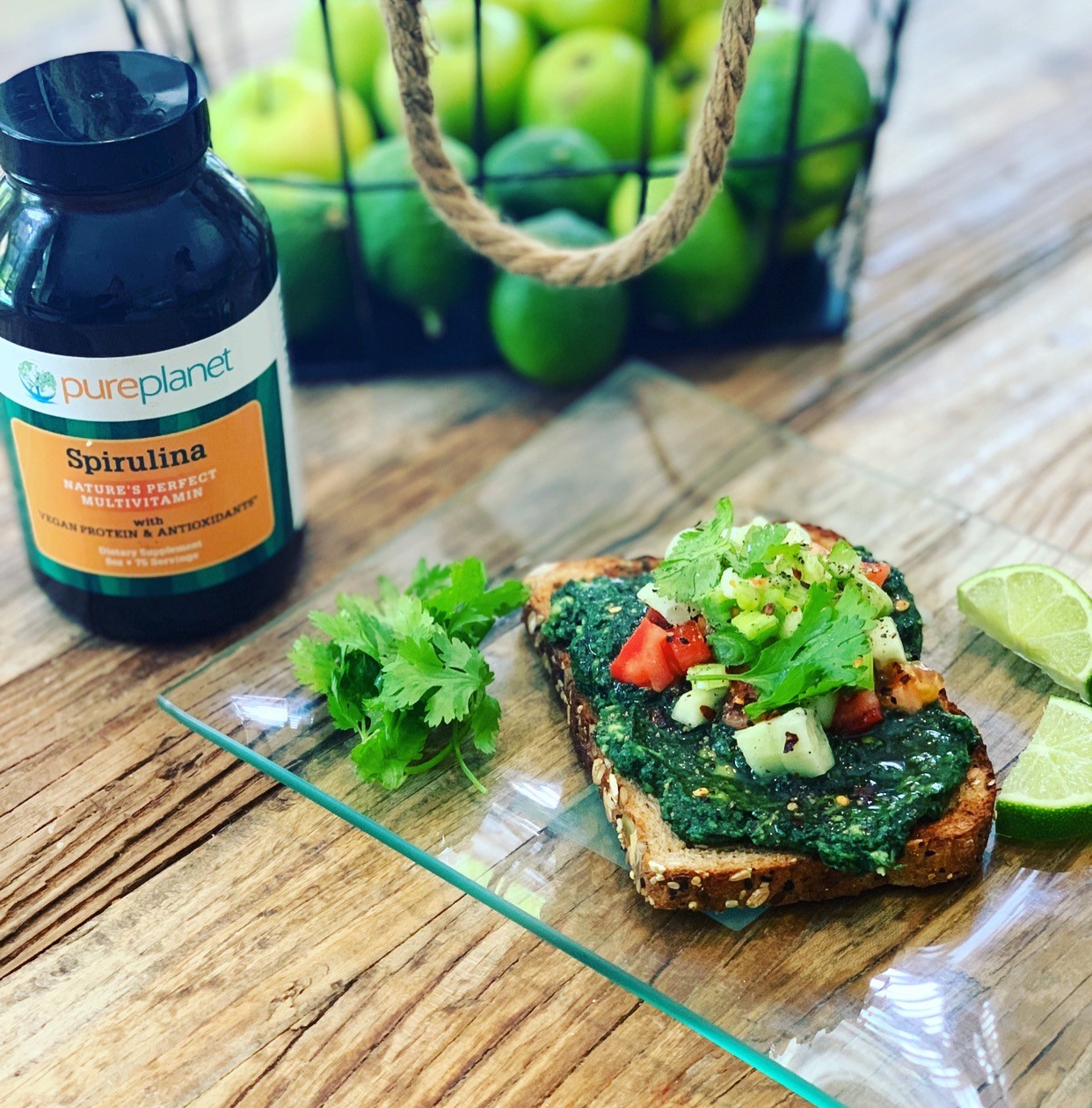
Photo cred: @biohackingjen (Instagram)
Sea Greens – Spirulina
Spiru-what? If you’re not well-versed in the green veggie world, you may not have any idea what the heck we’re talking about here. Spirulina is one of our most favorite greens because of its nutritional content.
Here’s a little run-down about this sea plant:
- Nutrient-dense, packed with minerals that help support your body
- Filled with antioxidants that support oxidation (basically, it helps your body fight free radicals and also works as a post-workout pick-me-up)
- May help balance healthy cholesterol levels
What’s more, this blue-green ocean flora can also supply protein. According to the United States Department of Agriculture (USDA), spirulina contains about 4 grams of per tablespoon.
According to Harvard Health, our recommended protein allowance per day amounts to about 0.8 grams per kilogram of body weight. So, adding spirulina to one your meals or snacks could help you reach your daily protein goals.
For fun ways to incorporate this sea green into your diet, check out some of these spirulina recipes.
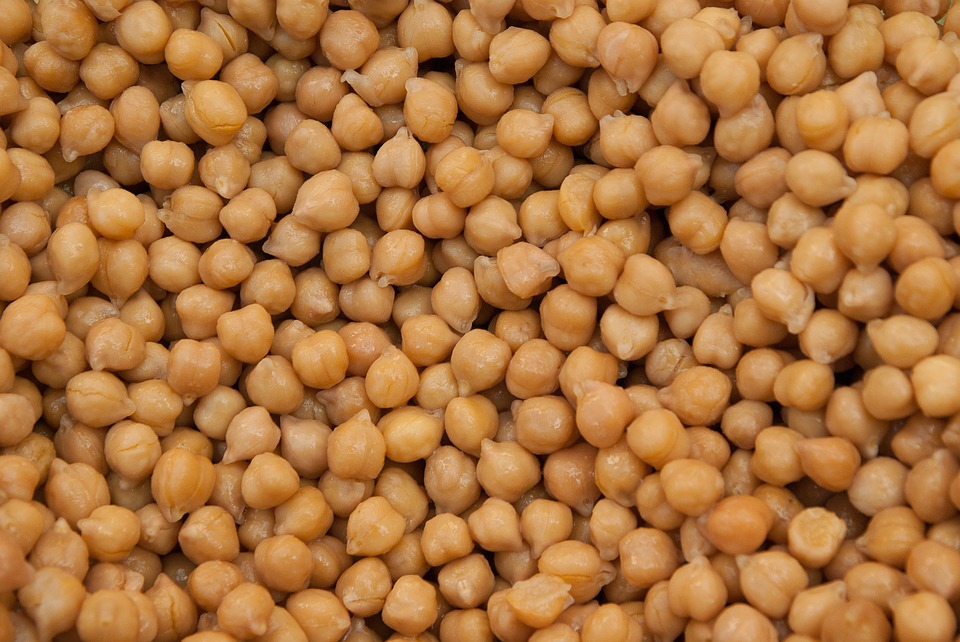
Legumes
What are some other plants that can help you get your daily protein? Consume some legumes!
In case you did not know, legumes are the fruits and seeds of a plant. Some of our favorites include:
- chickpeas
- lentils
- peas
- kidney beans
In particular, we love peas! Peas can supply 8.2 grams of protein and 8.8 grams of fiber. Because of this, nutritionists and nutrition-based companies create protein shakes using these little bulbs of awesomeness.
We do not have a protein shake made with peas at Pure Planet, but we do have something equally as cool! Meet Master Amino Acid Pattern!
Our Master Amino Acid Pattern is predigested, 100% vegetarian protein support, made from legumes! Because these legumes are pre-digested in a patented process, they may help aid protein synthesis. Basically, they can be used to help your body create protein by supporting amino acid production.*
Because of this, these legumes may also help fuel workouts, whether you are running a marathon on the treadmill or pumping iron by the weight racks.

Chia Seeds & Hemp Seeds
From one type of seed, we move on to other cool choices: chia and hemp seeds!
Chia seeds can help provide 4 grams of protein and a whopping 11 grams of fiber in one serving size. What’s more, these seeds pack amino acids like peas. This means that are quality protein source.
Hemp seeds work in the same way. The USDA reports that hemp seeds contain about 9.46 grams of seeds in about 3 tablespoons. What’s more, hemp seeds contain essential fatty acids, which help promote brain health and more.
Both chia and hemp seeds are easy to incorporate into your diet. You can buy a big bag and sprinkle them in literally everything you consume: from water to salads to workout smoothies!
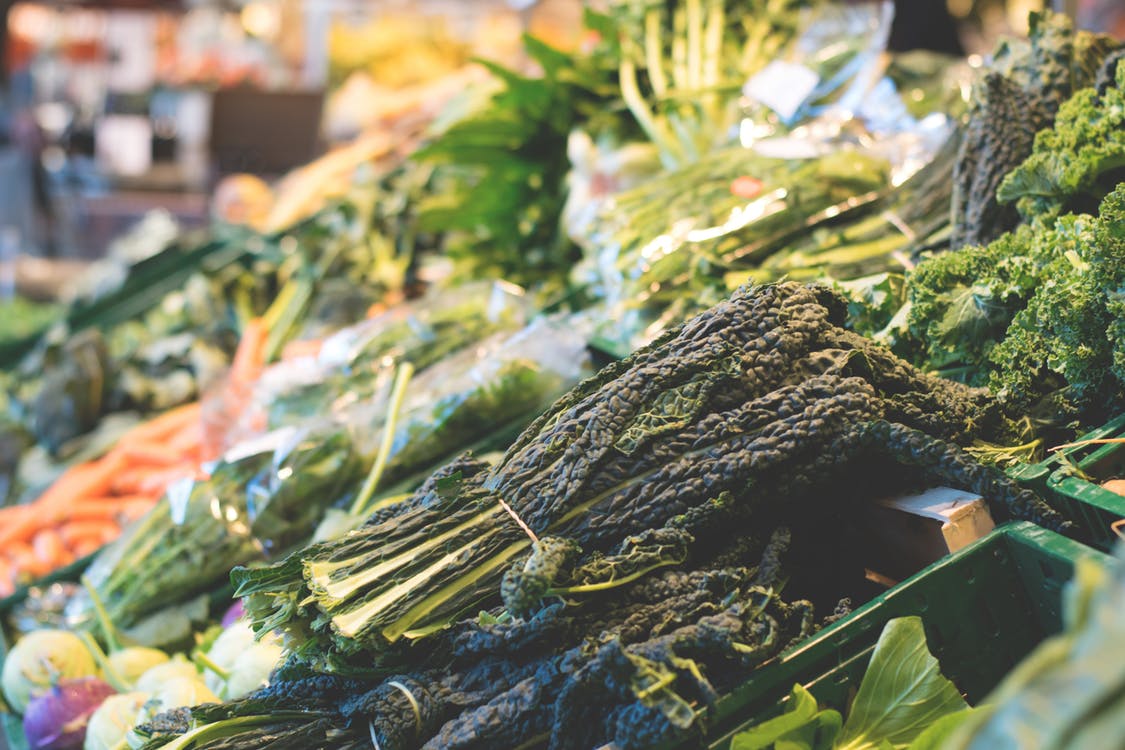
Leafy, Green Veggies
And last but not least, leafy, green veggies can help provide protein for plant-based eaters. So, if you were trying to avoid eating your veggies, sorry!
While every vegetable contains essential minerals and antioxidants, not all contain equal amounts of protein. Courtesy of Medical News Today, here are the protein-packed veggies you should be gorging on:
- watercress
- alfalfa sprouts
- bok choy
- asparagus
- broccoli
Getting your greens in could be a bit hard, and that is why we created our Best of Greens mix, containing cereal grasses (like barley grass), cruciferous veggies (like broccoli and kale), algae and sea veggies (like spirulina and kelp).
For fun ways to work greens into your day, check out our mini-guide.
Pure + True Since ’92
At Pure Planet, we like to give you the goods, without the nasties. Our products do not contain fillers, artificial flavors or GMOs. Check out our selection of superfoods.
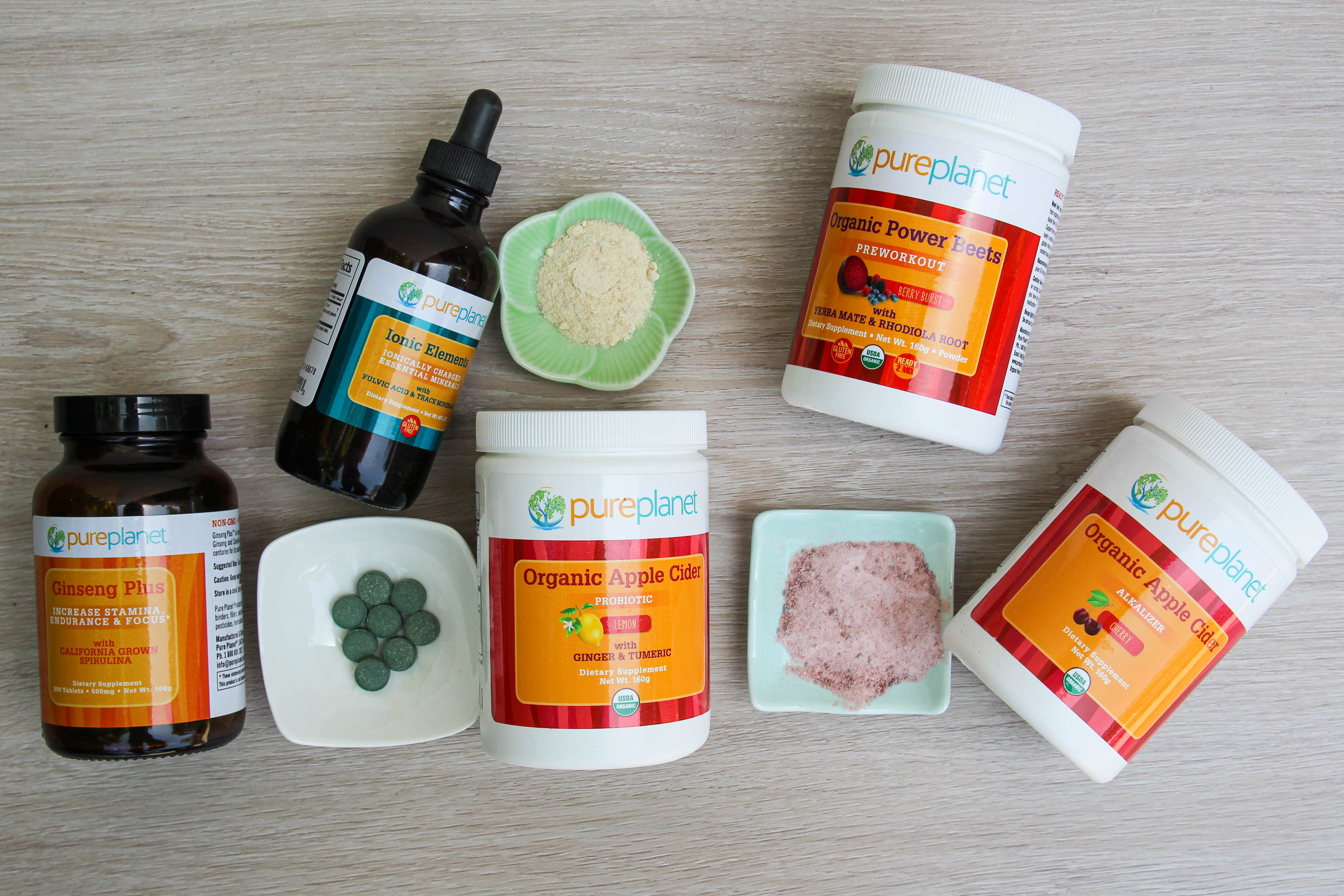
*These statements and products have not been evaluated by the Food and Drug Administration. These products are not intended to diagnose, treat, cure or prevent any disease.
It seems that new health trends are constantly popping up — it’s way hard to keep track, right?
From intermittent fasting to milk from roaches (yes, that’s actually true), so many people are searching for their health fix that will make them achieve their ultimate goal.
One such trend that has been gaining quite a bit of traction is spirulina. Touted as an excellent source of nutrition, it has been referred to as a super-nutrient. But what exactly is it and does it really possess super-nutrition powers?
Let’s find out!
The Basics
Normally, the saying goes “unless you live under a rock, you should know…(insert: obvious info).” That’s actually the opposite when it comes to this superfood. Because, if you DID live under a rock, specifically one in the ocean, you might have actually come across this very, hidden plant. Spirulina is blue-green algae.
What? We know, that may be a little off-putting, but bear with us.
This form of bacteria is known as a cyanobacterium, which uses sunlight to produce energy. With amazing properties, it probably offers most people what they’re looking for in a supplement. And yes, of course, it’s safe to consume.
So, why would you want to take it? We’re glad you asked.
Exercise Support
First of all, spirulina is protein-packed. And that can do wonders when you are looking to either lose weight or toning up your muscles.
One study showed that high-protein can help burn more fat and speed up metabolism.
But that’s not all that this superfood can provide when you want to get fit.
Spirulina provides a good source of oxidative support, so is ideal for working out and cardio activity. A study explored its effects on people who exercised regularly, but weren’t total pros. They focused on a group of men who moderately exercised.
Here’s what they found:
The time it took for these men to be fatigued after a 2-hour run increased after taking spirulina. For you science-oriented folk, spirulina consumption led to a 10.3% decreased carbohydrate oxidation rate and increased fat oxidation rate by 10.95!
In English? The men were able to exercise for longer, with improved endurance and performance.
And that’s not all!
There is also, at the very least, a connection between spirulina and muscle maintenance. Another study investigated this connection by focusing on average people (not physically trained) who added the superfood to their diet for three weeks. After treatment, their blood was examined and they were monitored while using an incremental treadmill.
What did the researchers find? Spirulina consumption was linked to:
- boosted exhaustion time, even for average exercisers
- muscle damage protection, even during all-out exercise
Sounds pretty cool to us. But if you don’t exercise, can it still be beneficial for you?
Hmm…let’s find out!
Weight Loss, Blood Pressure & Cholesterol
Why, YES. The algae supplement also seems to have the ability to benefit both blood and body weight, even for those who don’t exercise.
In a randomized double-blind study on overweight individuals with hypertension, 40 patients took spirulina daily. Their BMI, weight and other functions were surveyed before and after.
Why did they find? Their BMI improved, along with weight and blood pressure. Score!
Seems like this green source of goodness is pretty nutritious, right? Speaking of greens…
In addition, thanks to the results of this spirulina study, we have learned that the super-nutrient encourages healthy cholesterol in those with type 2 diabetes, by helping lower LDL levels (bad) and promote HDL (good) levels.
Okay, if you’re still unimpressed because NONE of the above applies to you, there is more!
Allergies
That’s right, we’re talking to all those who fear every spring breeze or beautiful new bloom because they will soon bring on itchy eyes and fits of sneezing. This green source of goodness can be your non-pharmaceutical, organically-grown support when combatting high-pollen air times or your fluffy pet’s fur.
An allergic rhinitis (sinus allergies) study focused on 127 people and found that spirulina consumption could actually help reduce symptoms such as runny nose, congestion and even itching.
Do you STILL not think that spirulina is something you need daily?
Well, keep reading.
Green Clean, Metal-Cleansing Machine
Whether we know it or not, our bodies can sometimes absorb heavy metals. This can happen by unknowingly ingesting pesticides or inhaling or coming into contact with metal-poisonous sources.
But, the good news? Spirulina might be able to help with that. Greens have always been known for cleansing and alkalinity balancing and this green superfood is no different.
One study reports that spirulina, when paired with zinc, can help eliminate arsenic poisoning.
The report studied 41 patients with chronic arsenic poisoning, randomly prescribing them to either a placebo or spirulina-zinc extract for 16 weeks. The patients lived in areas where clean water is scarce, and metal-posioned water is unfortunately plentiful. These individuals were also given metal-cleansing filters to ensure they drank clean water.
But luckily, there’s a happy ending!
By the end of the study, their arsenic-poisoning was reduced, proving that blue-green algae could be of use for treatment.
Anti-inflammatory Antioxidant
Last, but certainly not least, this superfood is an antioxidant. This is due to a phytochemical called phycocyanin, which is responsible for its blue-green color and some of its oxidative stress-relieving effects. It can also help fight free radicals and inflammatory signals in the body.
Studies are promising but, of course, more research is necessary.
An Important Note
Because spirulina is algae, it is important to know the product origin, to ensure quality and cleanliness. You should only buy from brands that you trust.
That’s why we ensure our non-GMO, California-grown spirulina is up to par. With our promise of being Pure and True since ’92, you can count on only the purest spirulina, just like all of our other products!
- Spirulina (capsules): In capsule form, this can be added to any health or exercise regimen.
- Choco-Mint Spirulina (powder): For those looking for a little more flavor, our Choco-mint blend gives you all the nutrient support plus a boost of flavor. This is especially good for those with a more picky palette.

